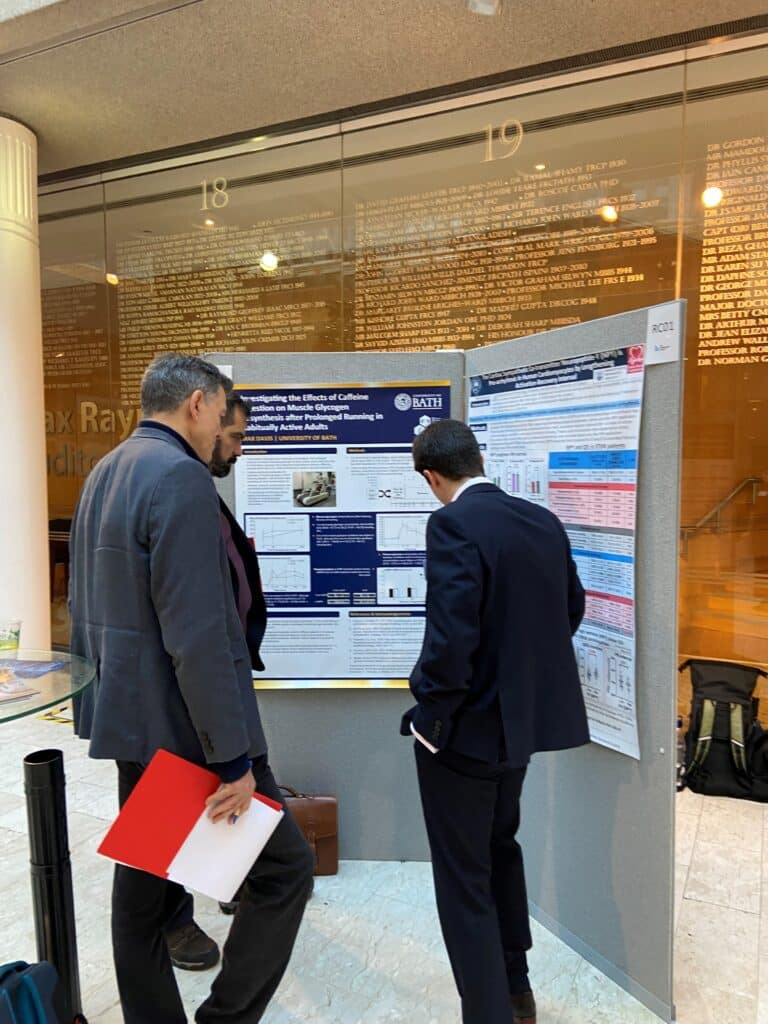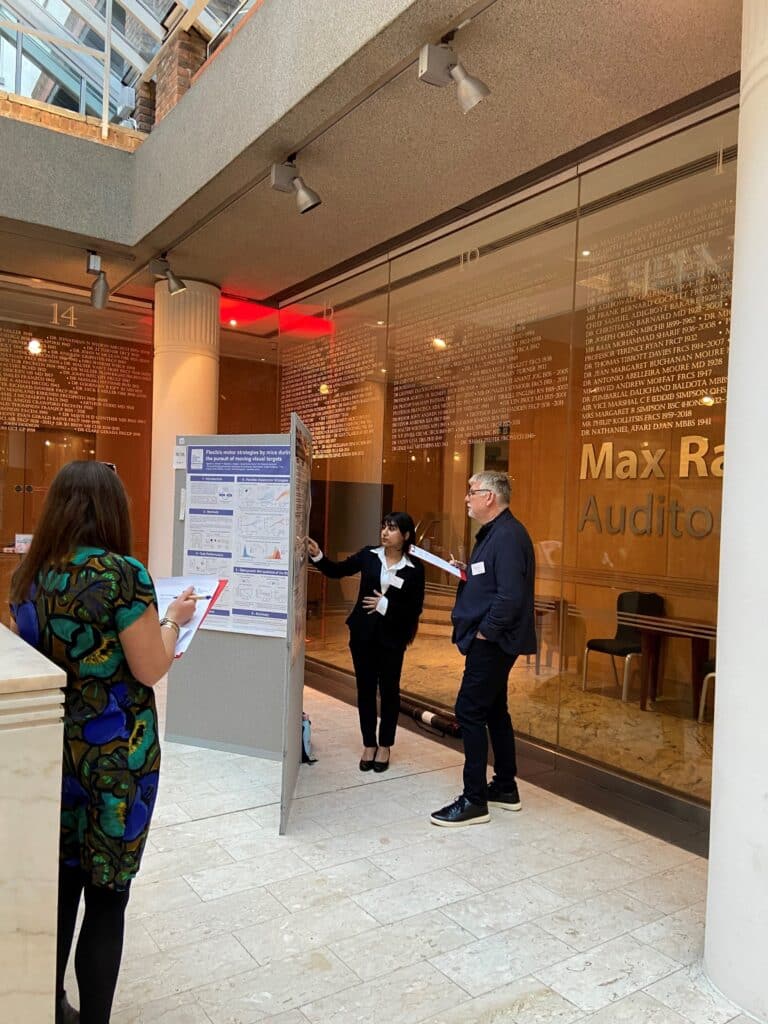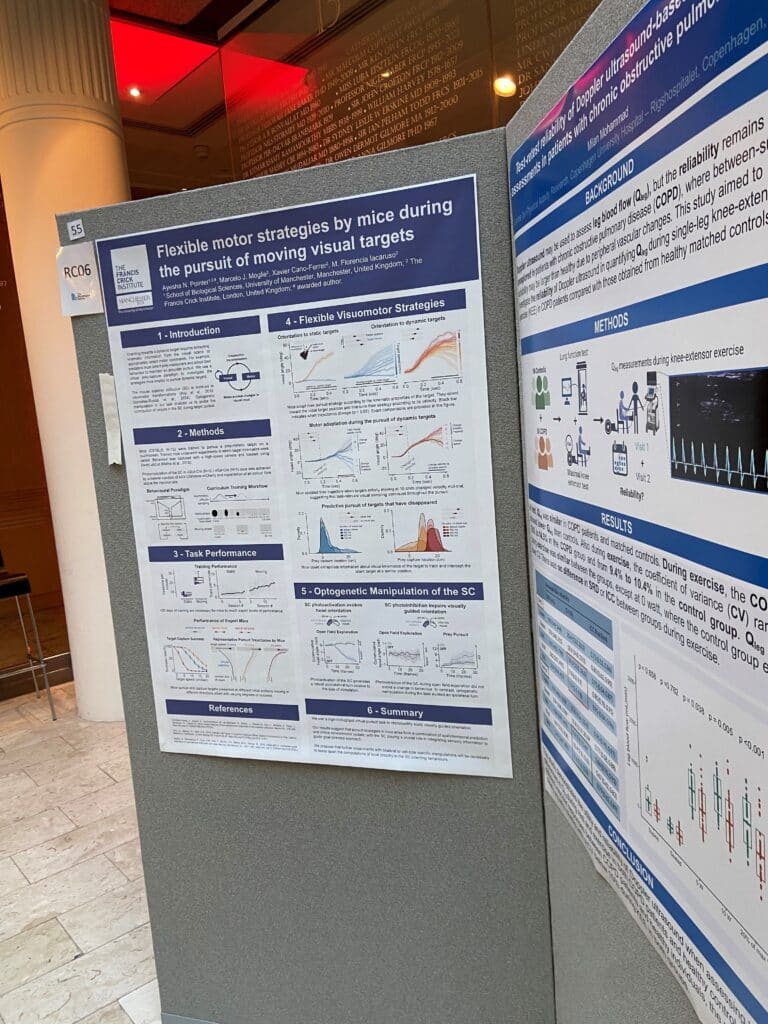The Rob Clarke Awards were one of the highlights of this year’s Member Forum held on Friday 29 November at The Royal Society. The award recognises excellence in undergraduate physiology projects.
This year, seven students were shortlisted for an Abstract Award and invited to present a poster at the Member Forum for final judging. The judges were impressed with all the finalists and decided to award two winners. The joint winners were Ryan Bloxsom (University of Oxford, UK) and Ayesha Pointer (The Francis Crick Institute, UK).
Ryan presented his poster titled ‘The electrophysiological effects of Neuropeptide-Y on human Induced pluripotent stem cell derived cardiomyocytes’, and Ayesha presented her poster titled ‘Flexible motor strategies by mice during the pursuit of moving visual targets’. The judges praised Ryan and Ayesha for their excellent presentations and responses to questions, as well as their enthusiasm and knowledge of their research areas.
Winners – awarded Rob Clarke Presentation Award
Ryan Bloxsom (University of Oxford, UK) and Ayesha Pointer (The Francis Crick Institute, UK)
Finalists – Rob Clarke Abstract Winners
Ryan Bloxsom (University of Oxford, UK)
The electrophysiological effects of Neuropeptide-Y on human Induced pluripotent stem cell derived cardiomyocytes
Max Davis (University of Bath, UK)
Caffeine Ingestion Does Not Accelerate Muscle Glycogen Resynthesis Following 90-minutes of Running in Trained Adults
Yi Jun Eng (University of Oxford, UK)
Straining to Explain the Frank-Starling Law: What Do We Know, Where Do We Go?
Emily Ito (University College London, UK)
Comparing Dynamic and Static Physiological Network Mapping Approaches for Modelling Sepsis Outcomes
Milan Mohammad (Center for Physical Acitivity Research, Rigshospitalet, Copenhagen, Denmark)
Test-retest reliability of Doppler ultrasound-based leg blood flow assessments during exercise in patients with chronic obstructive pulmonary disease
Ayesha Pointer (The Francis Crick Institute, UK)
Flexible motor strategies by mice during the pursuit of moving visual targets
Sarah Shah (Department of Physiology, Anatomy and Genetics, University of Oxford, UK)
Striatal Dopamine Release in the Tectonigral Pathway During Visually-Guided Behaviours
Many congratulations to all the awardees and a huge thank you to all the judges who were involved, including:
Nephtali Marina-Gonzalez (University College London, UK)
Hugh Montgomery (University College London, UK)
David Wyllie (University of Edinburgh, UK)
Féaron Cassidy (Maynooth University, Ireland)



